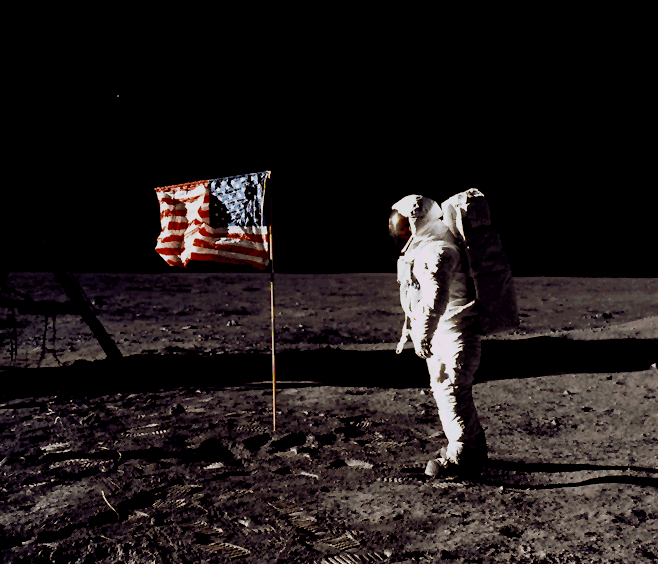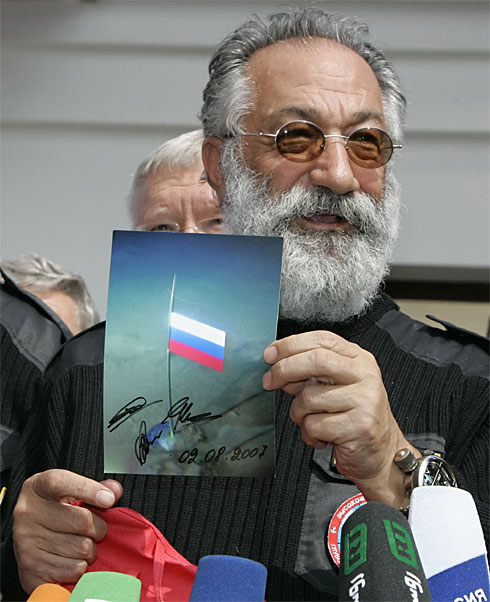User:Amy Suo Wu/space race
beyond the moon and outer space
For this semester, my interest in the landing of the moon initially stemmed from the contested reality of the nature of this event. Part fiction, part fact, my intrigue lies in the mythical narrative around an apparent historical moment. However, realising that perhaps the nature of mediated images are to some degree all contestable, I steered away from this angle and onto another. Still fascinated by this event, I started to unpack the event in an attempt to find out what else it was that I was drawn to. Therefore, I backed up a little and discovered that i was interested in the venture of 'peaceful' space exploration under the dubious guise of colonisation. The quest to expand and conquer new territory is an old narrative, a story that unfolds continually in each generation and is always underpinned by politics. One can argue that the desire to demystify the unknown, to cross the membrane unto the unfamiliar is hard-wired in our genes (However, the problem with this idea is that can easily be used as an excuse for irresponsibility, negligence and misdirected righteousness). As a consequence, the eternal race against ourselves, forces of nature and our own constructed systems is one that is evidently becoming faster-exponentially faster with the help of technological advancement. Of course we can only speculate that the ultimate goal is human transcendence, however it is one branch that does provide the space to reflect upon the balance of our inherent needs vs desires and the compromise of progress vs maintenance with our existence at stake. If we follow Ray Kurzweil's prophesies of technological acceleration into the future, it seems that he truly believes the rate of which technology is accelerating will continue at an exponential rate, so much so until no-one can possibly predict the other side. This is what he refers to as the Singularity. --> [see] trailer for a documentary on Ray Kurzweil.
It seems to me that the notion of 'race' is the underlining theme in our history to succeed. Race, in the sense of competition, a situation in which individuals or groups compete to be first to achieve a particular object symbolizing some measure of significance. Perhaps my view point is narrow, but I am trying to understand the human history of endeavor and its implications of competition and speed in relation to the idea of human transcendence. From evolutionary theories, to pioneering inventors (which is inevitably linked to commercial purposes), politics, academia, nation-to-nation relationships interpersonal relationships, all entail to some degree of competition. Speed, also a chemical drug, is addictive. Adrenaline junkies will chase this exhilarating sensation at any cost. Concentrated on the object of conquest, there is little time to reflect until the goal is achieved. Within the bodies are a myriad of bouncing energies, running amok and slamming from your heart to your belly until it reverberates down to the tips of your fingers and toes. Some call this sensation a case of butterflies in the stomach…
At any rate, racing to the insides of our entrails is the next leg of race for scientists of a particular movement, namely the Singularity movement. From the terrestrial colonisation of the New World of the Americas to the Moon landing, a symbol of extraterrestrial colonisation of outer space to the endo-colonisation of inner body space-all in the name of technological progress! In The Art of the Motor (1995), Paul Virilio goes to great lengths to criticise the Australian artists, Stelarc, of transforming the body into primary material, potentially making a lab rat out of us. Additionally condemns the endocolonisation of biosphere (nanotechnology) in saying that his exotic desire to extend our body is merely an alibi for the technical invasion.
possible ideas
- 1) Tentative title: The eternal race for transcendence through technology.
With the above as a backdrop, this idea's main thread is to use the medium of a race to underpin the course of the three stages human colonisation. Namely, terrestrial, extraterrestrial and inner-terrestrial. For this outcome, I envisioned some kind of race course sourced from human powered bicycles. The race course would be built manually and have three sections, that is, the three mentioned above. The goal would be to finish first and the winner would have the honour of implanting the flag into the body.
--> Fantastic Voyage, 1966. This movie deals with issues of the frontier of the interior biosphere, competition reflecting the political climate between USSR and the US during the cold war foreshadowed by suspicion, fear and danger.
- 2) Where no flag has been before.
"The flag on the moon represents an important event in vexillological history." - A. M. Platoff
The planting of a flag on any new territory(s), in this case the first landing of the moon, always concerns political agendas. It is political because it is always about the struggle of power, or power races if you will. The act of planting a flag in some respects is a declaration of triumph, a symbol of conquest and simultaneously an act of imposition. It is the motive behind this motion that symbolises the recurring desire to expand, engulf and establish. The repetition of this grand narrative-a desire to conquer is a double-edged sword. It implies winners and losers, gained and lost, the exploiter and the exploited, the subjugator and the subjugated. For perfect harmony only seems to exists in theory, imagination, idealism and democratic utopias. Yet if we look at the word conquer, it is based on Latin conquirere ‘gain, win,’ from con- (expressing completion) + quaerere ‘seek.’ To seek completion, a quest to understand the whole, to strive until whats not there, is. But what is that mysterious missing 'it' we strive for? Moreover who and what is at stake when we seek completion in the name of technological progress or human perfection?
In light of this, option number two shifts the emphasis away from the notion of race (although still very much there) and rather focuses on the historical pattern of conquest and the politics of progress so perfectly captured in the symbol of the flag planting on the moon.



